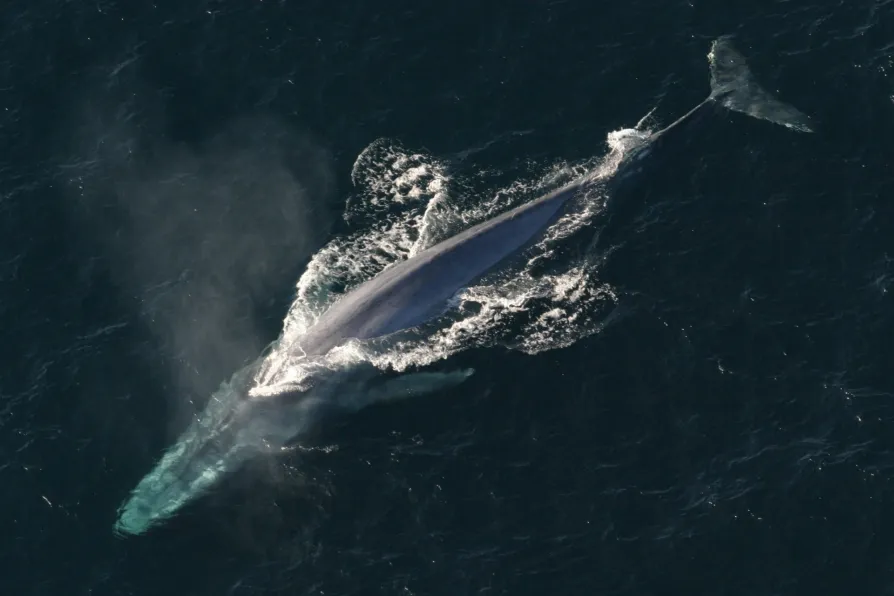Durham Miners’ Association general secretary ALAN MARDGHUM speaks to Ben Chacko ahead of Gala Day 2025

 A blue whale
A blue whale
THE immense cruise ships may be doing what they can to deplete whale numbers by running the behemoths down in mid-ocean, but one family of whales — the blues – are doing well, despite all we and the environment can throw at them.
Scientists have seen and filmed a huge pod of blue whales in the coastal waters around the Antarctic island of South Georgia. They counted 55 animals, unprecedented in the decades since commercial whaling ended.
South Georgia was once the centre for hunting in the early 20th century.
Whale-hunter ships with powerful harpoons reduced the Antarctic blue whale population to just a few hundred individuals — driving it almost to extinction.
The blue whales’ physical size made them a profitable catch, and around South Georgia more than 33,000 Antarctic blues were documented to have been caught and butchered, most of them between 1904 and 1925.
By the time a ban was introduced in 1966, a sighting anywhere in southern-ocean waters would have been extremely rare indeed.
Today it is clear that the moratorium on commercial whaling is working.
Hunting nearly killed them off but now, after decades of protection, it seems these waters are a good place for them once again.
Fifty-five blue whales, adult and immature, returning to what was once an important feeding ground has been described as “truly, truly amazing” by cetacean specialist Dr Trevor Branch from the University of Washington, Seattle.
“To think that in a period of 40 or 50 years, I only had records for two sightings of blue whales around South Georgia. Since 2007, there have been maybe a couple more isolated sightings. So to go from basically nothing to 55 in one year is astonishing,” he told a BBC news team.
So if hunting has stopped, what are now the major threats to the big whales? For the answer to that we need to look at research from much further north.
In 2018 Cape Cod’s Centre for Coastal Studies announced that the North Atlantic right whale — even rarer than the blue — faces complete extinction by 2050. Today only around 400 remain.
Data from 1970 to October 2006 — the latest available — shows that half of the 73 documented deaths of the North Atlantic right whale were down to human intervention.
The prime cause of whale deaths was being run down by a fast-moving large ship. A 2001 forecast indicated that North Atlantic right whales would be extinct within 20 years.
In one recent year only four calves were born, and one of them was run down and killed by a large vessel in its first year.



















